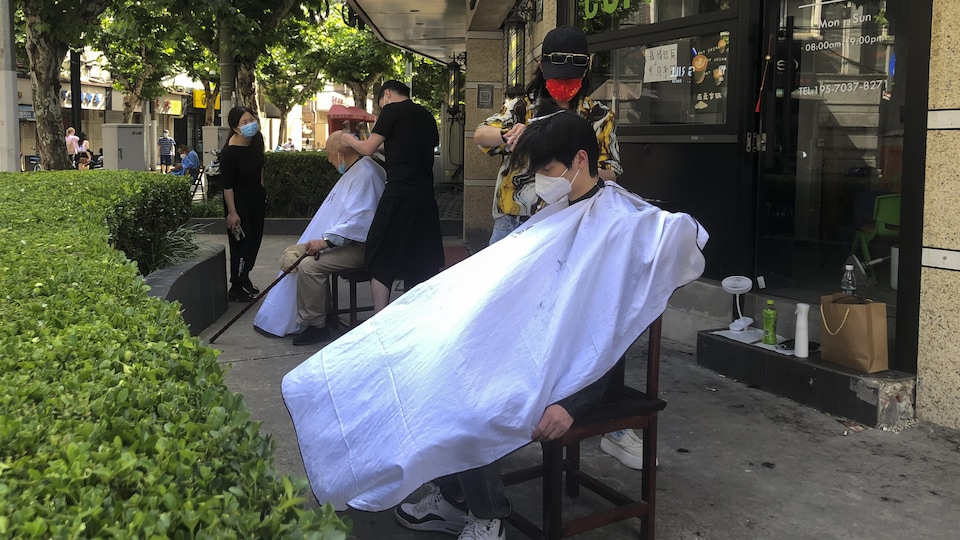Shanghai on Tuesday announced further easing of restrictions against COVID for this week, a further step toward lifting the detention that lasted two months, which angered 25 million residents and choked the economy.
China’s economic capital has been locked in stages from late March in response to a nationwide outbreak, the worst since the pandemic began in late 2019.
Unlike many countries, China continues to apply a zero-COVID approach, which includes the imposition of quarantines and lockouts once cases arise to prevent deaths.
22 million people were affected
After easing some restrictions in recent weeks, town hall said Tuesday that residents of areas considered low -risk will be allowed to move freely into the city from Wednesday.
This important step towards ending the detention will be applied to approximately 22 million people, told the press Zong Ming, one of Shanghai’s deputy mayors.
Starting Wednesday midnight, the city enters the third stage (of deconfinement), with a complete return to normal still progressive, he said.
Shopping centers, convenience stores, pharmacies and beauty salons will be able to operate at 75% of their capacity, Zong said.
Partial reopening of schools
Sports halls and cinemas will remain closed and the reopening of schools will be carried out in each case.
A Shanghai resident who works in e-commerce, Chen Ying, told AFP he will continue to work from home, but he plans to bring his two-year-old son for a walk outside on Wednesday.
Basically, we should be free to roam in the beginning, so don’t expect me to be overly grateful now that they’re restoring our freedom.he says.
Shanghai media released photos on Tuesday of officials removing some of the barriers blocking the city’s neighborhoods for weeks.
However, one resident, Anita Xu, said she was confused by the removal of the restrictions.
” Even if you can go out, you never know what you can do or not. I was a little shocked. “
Until then, the population in general could only go out for a few hours a day at optimum, if they were in a neighborhood without any positive cases.
Taxis and private vehicles are a priori able to re -cycle the roads in the zones known as low risk Wednesday. Public transportation should also be continued.
31 new cases against 25,000 at the end of April
People living in areas that are considered very delicate will still be subject to travel restrictions.
The Health Ministry reported 31 new positive cases in Shanghai on Tuesday, up from more than 25,000 at the end of last month.
The closure of the city, the most populous in China, has weakened the economy, penalized production, limited consumption and severely disrupted supply chains.
Source: Radio-Canada
